Distinguished Leaders
The DBR's annual Distinguished Leaders awards recognize the great performances and valuable leadership of noteworthy South Florida attorneys.
May 21, 2018 at 06:00 AM
31 minute read
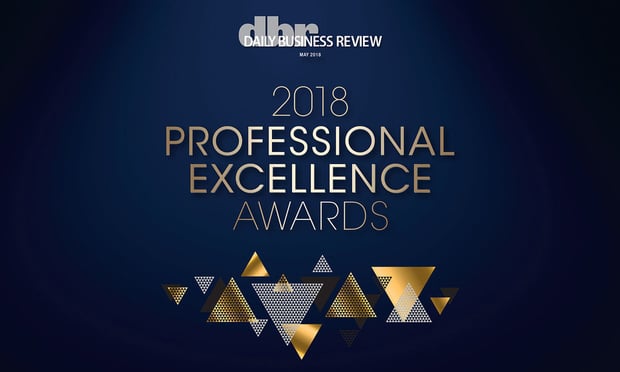
The Daily Business Review's Distinguished Leaders awards recognize lawyers who achieved impressive results in 2017 and demonstrated clear leadership skills that helped them achieve those results. The award is about highlighting South Florida lawyers who demonstrated great performances as well as valuable leadership skills while doing it.

SUZANNE AMADUCCI-ADAMS
Title: Partner, real estate practice group leader
Firm/Company/Agency: Bilzin Sumberg
What is the one-word people use to describe you? No lawyer can use only one word. The words most of used to describe me are resilient, resourceful, practical and that I'm an outside-the-box thinker.
What is your favorite thing about being in the legal profession? I get to solve a new puzzle every day.
What could you do without in the legal profession? Billable hours and obstructionists.
What is your No. 1 survival tip in a work crisis? Keep calm and carry on. There is at least one solution to every problem. Sometimes you just need to work hard to find it.
What do you think you are better at than others? Always getting my deals across the finish line no matter the obstacles. This involves not being afraid to craft new and unusual solutions to problems.
What advice do you have for aspiring legal professionals? Love what you do or do something else.
What has been the most significant change in the legal profession in the past 10 years? The pace. It is an instantaneous world now and finding the time to think through things first comes at a premium.
Knowing what you know now, what would you tell your young self when you were graduating? It is going to be a bumpy road with a lot of obstacles. Take each obstacle one at a time and don't get distracted. Most importantly don't sweat the small stuff and certainly don't listen to those who try to stand in your way.
What's your idea of an idyllic retirement, and are you going to pursue it? When you love what you do, you never retire. However, I do picture myself negotiating more deals from a yacht in a tropical climate.

BOWMAN BROWN
Title: Executive committee chairman
Firm: Shutts & Bowen
What is the one word people use to describe you? Helpful.
What is your favorite thing about being in the legal profession? Getting to know clients, most of whom have become good friends.
What could you do without in the legal profession? Keeping time charges; billing.
What is your No. 1 survival tip in a work crisis? Stay calm. It will all work out.
What do you think you are better at than others? I like to think I'm a creative problem solver.
What advice do you have for aspiring legal professionals? Work hard. Don't get discouraged. The longer you practice, the better it gets.
What has been the most significant change in the legal profession in the past 10 years?
The practice of law has progressively become more of a business and less of a profession over the past 10 years.
Knowing what you know now, what would you tell your young self when you were
graduating? Work hard; learn a specialty practice area.
What are you most proud of achieving in your career? Helping to build South Florida as an international financial center, while building our law firm.
What's your idea of an idyllic retirement, and are you going to pursue it? Continuing to practice law with vigor.

CHARLES CAULKINS
Title: Vice chair
Firm: Fisher Phillips
What is the one word people use to describe you? Tenacious.
What is your favorite thing about being in the legal profession? In the area of labor and employment law, working with business leaders to help them succeed by anticipating, preventing and resolving workplace obstacles to their ideas of success.
What could you do without in the legal profession? A lawyer who acts as if he or she is the client rather than the professional counselor and advocate.
What is your No. 1 survival tip in a work crisis? Discipline yourself to remain calm and collected at all times.
What do you think you are better at than others? Seeing the difference between the forest and the trees.
What advice do you have for aspiring legal professionals? Find an area of the law you really like and thoroughly learn the basics.
What has been the most significant change in the legal profession in the past 10 years? The internet.
Knowing what you know now, what would you tell your young self when you were graduating? Discipline yourself to think out of the box at all times.
What are you most proud of achieving in your career? Having the opportunity to mentor many successful people.
What's your idea of an idyllic retirement, and are you going to pursue it? Good question?
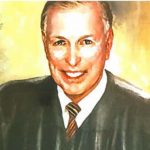
PETER T. FAY
Title: Senior U.S. circuit judge
Agency: U.S. Court of Appeals for the Eleventh Circuit
What is the one word people use to describe you? Judge
What is your favorite thing about being in the legal profession? The constant mental challenge.
What could you do without in the legal profession? Advertising and hourly billing.
What is your No. 1 survival tip in a work crisis? Call a “time out,” take a step back, relax, think through the problem, and start over.
What do you think you are better at than others? Nothing!
What advice do you have for aspiring legal professionals? There is nothing more important than your reputation!
What has been the most significant change in the legal profession in the past 10 years? Electronics.
Knowing what you know now, what would you tell your younger self when you were graduating? Get a mentor and develop some older-lawyer relationships that you can use for advice.
What are you most proud of achieving in your career? A reputation for integrity, I hope.
What's your idea of an idyllic retirement, and are you going to pursue it? Being a senior federal judge is as good as it gets.
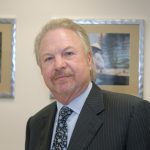
GERRY GREENSPOON
Title: Co-managing director
Firm: Greenspoon Marder
What is the one word people use to describe you? Real.
What is your favorite thing about being in the legal profession? I enjoy helping people solve their problems.
What could you do without in the legal profession? The legal profession could do without overzealous lawyers.
What is your No. 1 survival tip in a work crisis? Stay calm. Always collect your thoughts before moving forward.
What do you think you are better at than others? My strength in leadership and management has contributed to the growth and success of Greenspoon Marder.
What advice do you have for aspiring legal professionals? Work hard. Don't expect for it to be easy.
What has been the most significant change in the legal profession in the past 10 years?
Being more watchful. Lawyers need to be more responsible for the cost of legal services.
Knowing what you know now, what would you tell your young self when you were graduating?
Get the best mentor for myself post-graduation. It makes the difference.
What are you most proud of achieving in your career? I am proud of achieving a successful business with great partners and happy employees.
What's your idea of an idyllic retirement, and are you going to pursue it? I would like to continue doing what I do now but enjoy having time off and spending it with family as much as possible.

PATRICIA HERNANDEZ
Title: Partner
Firm: Avila Rodriguez Hernandez Mena & Ferri
What is the one word people use to describe you? Dedicated. I am fiercely loyal and committed to those around me — my family, my firm, every person within my firm and our clients. My efforts every single day are geared towards the success of each of those.
What is your favorite thing about being in the legal profession? Dealing with new issues and matters every day — no two days are the same — and the fact that dealing with new issues requires creativity in finding the best solutions for our clients. Our clients come to us with matters that are important to them and rely on us to be able to present practical strategies to accomplish their goals.
What could you do without in the legal profession? Billable hours! I think that is an answer that both lawyers and clients would agree. We need to move to alternative ways to charge for our services that recognize the value we bring to our clients but encourage efficiency.
What is your No. 1 survival tip in a work crisis? Take a step back and look at the crisis from a different angle. We tend to become entrenched in our positions and unable to recognize the reasons behind the positions that others take. When you can appreciate where others come from, it is easier to craft a solution to any issue. Also, a few deep breaths help.
What do you think you are better at than others? Considering and appreciating everyone's point of view. When you can consider alternative views and understand everyone's feelings and strategies, then you can bring people together for success. That is the strategy I use on client matters, but also in managing issues within our office.
What advice do you have for aspiring legal professionals? Be resourceful, be humble and be willing to take on opportunities that others may not be willing to take on. That will open doors. Whenever we are interviewing new professionals, we always consider whether the person is a roll-up-your-sleeves type of attorney, willing to take on challenges and work hard to do what is necessary for the client.
What has been the most significant change in the legal profession in the past 10 years? I think it is the speed at which business is done. Circumstances require rapid turnaround of work and leave less time to contemplate matters and think through issues. This environment lessens the opportunities for training of younger attorneys when everything must be done so quickly. I do believe that firms and attorneys who have the knowledge and resources to be able to answer client needs immediately have greater chances of success.
Knowing what you know now, what would you tell your young self when you were
graduating? Understand that, as an attorney, a wife, a mother and a daughter, you will always be juggling. Build a great support system and identify what is your top priority at any given time. One morning, it may be making it to an important breakfast meeting, and that same afternoon it may be making it to your son or daughter's game. To succeed you need to be flexible.
What are you most proud of achieving in your career? I am most proud of the firm my partners and I have built over the last 11 years. We left a very large firm because we wanted to embark on an entrepreneurial adventure. We have been blessed to succeed and to build a place that is home for all of our partners and employees.
What's your idea of an idyllic retirement, and are you going to pursue it? My ideal retirement would be to live on the beach and have the time and good health to enjoy my children and grandchildren. Also, travel — discover new places around the world. God willing, I hope I can.

JOHN M. HOGAN
Title: Partner, Litigation section leader
Firm: Holland & Knight
What is the one word people use to describe you? Reasonable.
What is your favorite thing about being in the legal profession? The variety of issues that you are asked to deal with.
What could you do without in the legal profession? Not much.
What is your No. 1 survival tip in a work crisis? Prioritize.
What do you think you are better at than others? Keeping an open mind.
What advice do you have for aspiring legal professionals? Follow your heart. Don't commit to a specialty too soon.
What has been the most significant change in the legal profession in the past 10 years? Technology.
Knowing what you know now, what would you tell your young self when you were graduating? Work hard and trust your instincts.
What are you most proud of achieving in your career? I am very proud of the young lawyers that I have worked with and mentored over time. I was very fortunate to work with a number of exception young lawyers who have gone on to great success.
What's your idea of an idyllic retirement, and are you going to pursue it? I would like to find a way where I could continue to teach and work with young lawyers. I am still trying to find a way to do this.
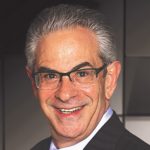
ALAN KLUGER
Title: Founding member
Firm: Kluger Kaplan Silverman Katzen & Levine
What is the one word people use to describe you? Passionate. Whether it is about my family, my clients, my philanthropic involvement or my art collection, I always try to commit 100 percent to everything I do.
What is your favorite thing about being in the legal profession? Serving as a trusted adviser to my clients. I take great pride in being more than just their attorney, but also a confidante and problem solver.
What could you do without in the legal profession? Lawyers who think it is about themselves rather than their client. As attorneys, our job is to serve our clients. When an attorney focuses on themselves first, it is often to the client's detriment.
What is your No. 1 survival tip in a work crisis? Always make sure you are prepared for anything that might occur. As in any high-stress situation, being thoroughly prepared allows you to tackle a crisis methodically.
What do you think you are better at than others? I have a photographic memory that allows me to excel at being a trial attorney. This enables me to recite and recall full documents at moment's notice at trial and allows me to better focus on connecting with a jury.
What advice do you have for aspiring legal professionals? Practicing at a law firm is not for everyone and just because you have a law degree does not mean you have to take a traditional route. A legal education provides a foundation for a variety of fields and can open doors in both the public and private arenas, for those interested.
What has been the most significant change in the legal profession in the past 10 years? The rise of electronic discovery and the shift to going paperless has made the profession more efficient for both attorneys and clients. While it used to take endless hours to scour stacks of documents in the discovery process, technology has now reduced that to a fraction of the time.
Knowing what you know now, what would you tell your young self when you were graduating? Slow and steady wins the race. Being a lawyer is often about the journey, not the destination. By focusing too much on achieving the end goal too quickly, you can often miss important opportunities that may arise along the way.
What are you most proud of achieving in your career? I am most proud of providing pro bono service in various high-profile cases that have made a difference for the organizations and people involved. An example of this is when I represented the board of trustees of the Museum of Contemporary Art, helping broach a settlement that ultimately paved way for a new museum the entire community can enjoy.
What's your idea of an idyllic retirement, and are you going to pursue it? While I love being a lawyer and don't plan on retiring, I also feel fortunate to have many other interests that keep me engaged on a daily basis. One of those interests is teaching and mentoring younger generations. We can make our lives more meaningful, and keep ourselves occupied, by constantly seeking to define who we are by how we act and not by what we do for a living! It's important to recognize that what we do is not who we are.

LESLIE M. KROEGER
Title: Partner
Firm: Cohen Milstein Sellers & Toll
What is the one word people use to describe you? That's a great question, and I'm not sure that I know of just one word. I think people would describe me as compassionate, focused, a leader or driven, but probably most of all professional. One of the nicest compliments paid by a colleague is recently being described as “accessible.” She further explained that I always make myself available, that I'm easy to talk to and that I have the ability to make challenging information or issues easy to understand.
What is your favorite thing about being in the legal profession? My ability to help people who otherwise would have no voice. My work allows me to fight for those who often have no one else to turn to.
What could you do without in the legal profession? The unprofessionalism between attorneys and their offices that seem to have overtaken some people. Our work is difficult enough just by its nature, without the added acrimony some feel the need to bring to every situation.
What is your No. 1 survival tip in a work crisis? Teamwork. Build a good team around you of those you know you can depend upon and who know they can always depend upon you.
What do you think you are better at than others? I'm a pretty good listener and observer of people. I think many lawyers forget that being successful in your career and for your clients doesn't always involve what you have to say but often about reading the other people in the room.
What advice do you have for aspiring legal professionals? Find an area of law that inspires you. Time commitments of our profession can be overwhelming, especially if you are working to build expertise in a particular area of law. In order to not be overwhelmed or burn out, you need to love what you do and look forward to it every day.
What has been the most significant change in the legal profession in the past 10 years? I believe that advances in technology over the last 10 years and our ability to be in contact with one another 24/7 has been the most significant change in the legal profession. Dependent upon what is needed or how you practice, the ability to speak with anyone or get information at the touch of a button can be great in helping accomplish your work. On the other hand, I think it's definitely contributed to an inability to separate work life from home life. It's perhaps why we now see an article in The Florida Bar News on mindfulness every month.
Knowing what you know now, what would you tell your young self when you were graduating?
Find something to enjoy in every job you have. Find something to learn from every boss you encounter. Find something to give to everyone who works for you.
What are you most proud of achieving in your career? I'm most proud that my children know that I've committed my life to seeking justice for those who have suffered a loss or their sense of hope.
What's your idea of an idyllic retirement, and are you going to pursue it? I think I'll keep that a secret for a bit longer. But yes, I do plan to pursue it.

RICHARD LORENZO
Title: Partner
Firm: Hogan Lovells
What is the one word people use to describe you? Determined.
What is your favorite thing about being in the legal profession? The challenge.
What could you do without in the legal profession? The overuse of legalese.
What is your No. 1 survival tip in a work crisis? Stay focused.
What do you think you are better at than others? I hustle more.
What advice do you have for aspiring legal professionals? Never give up.
What has been the most significant change in the legal profession in the past 10 years? The definition of work-life balance.
Knowing what you know now, what would you tell your young self when you were graduating? It's never easy, keep walking.
What are you most proud of achieving in your career? Making partner at Hogan Lovells and being named chair of the Hispanic National Bar Foundation.
What's your idea of an idyllic retirement, and are you going to pursue it? Running a beachside restaurant in St. Kitts.

BRIAN MILLER
Title: Securities litigation practice chair
Firm: Akerman
What is the one word people use to describe you? Thorough. As someone entrusted to solve my client's most pressing disputes, it has always been my priority to be very thorough and serve as an effective advocate both in and out of the courtroom. These are the qualities clients appreciate most when they are confronting challenging legal situations.
What is your favorite thing about being in the legal profession? As a securities litigator representing businesses and individuals, what I enjoy most is immersing myself into the details of each case. It could be learning how a business operates and the market dynamics that set it apart. When defending individuals, it has always been very rewarding for me to counsel someone going through a very dark period and help them overcome it. Those situations have given me a rare opportunity to know others in a very up-close, personal manner, an experience I find very fulfilling, especially when clients express their gratitude after overcoming a long-fought case.
What could you do without in the legal profession? Unnecessary acrimony among lawyers. We are all aiming to best serve our clients and advance our careers. There is no need to create challenges for one another by using unprofessional manners. Civility and an even temper should not be reserved only for clients.
What is your No. 1 survival tip in a work crisis? When the unforeseen happens, especially on a very complex case, it is my No. 1 goal as the senior lawyer in the room to maintain my team's composure and ensure our work remains thorough and consistent with client expectations. It is important for anyone in my position to remain even keeled and collected, otherwise you won't be able to lead others effectively. Without a well-managed team, you also won't be able to delegate and step outside a situation to tend to client needs that may fall outside the regular scope of your work.
What do you think you are better at than others? I was fortunate to work at the Securities and Exchange Commission early in my career and also as a transactional lawyer, experiences that have allowed me to differentiate how I serve my clients. As a securities litigator, I have developed a greater understanding and practical knowledge of accounting and finance principles and how those concepts work in a regulatory environment. These are fundamental skills that have helped me achieve a competitive advantage when it comes to understanding a business or an individual situation from my clients' perspective.
What advice do you have for aspiring legal professionals? Be very thorough in the work you do and don't cut corners. Always be ready to go beyond the obvious to find answers to any problem and treat the senior lawyers under whom you work as your internal clients. That will be the best training you will receive leading up to the day when you will directly interface with outside clients.
What has been the most significant change in the legal profession in the past 10 years? The rise of technology and electronic communications has raised client service standards, particularly when it comes to responsiveness. As lawyers, the challenge is to provide a fast response time albeit in the most thoughtful, accurate way. Coupled with trends in big data analytics, clients' expectations for legal services that meet their quality, speed and cost considerations have set a new normal for our industry.
Knowing what you know now, what would you tell your young self when you were graduating? Identify the areas that interest you the most from a professional and personal standpoint and pursue them to the fullest. Whether it is selecting the right practice area or pursuing a charitable endeavor in the community, focus on what is most important to you and strive to achieve excellence in everything you do.
What are you most proud of achieving in your career? It has been an absolute privilege and a great point of pride for me to work alongside so many outstanding lawyers at Akerman and across our community. My interactions with each of them have made an incredible difference for my clients and my practice.
What's your idea of an idyllic retirement, and are you going to pursue it? That would involve traveling a great deal and living in cities across different countries for months at a time to feel like a local in each place. It would be difficult for me to imagine anything more ideal than that. Hope I get to do it.
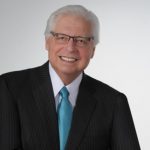
THOMAS F. PANZA
Title: Senior partner
Firm: Panza Maurer Maynard
What is the one word people use to describe you? Unrelenting.
What is your favorite thing about being in the legal profession? My favorite aspect of the legal profession is the complexity of issues and challenge in developing a client-centric strategic plan to bring a successful resolution to the matter.
What could you do without in the legal profession? The overwhelming reliance on technology, which should be a tool in an attorney's tool box and not a substitution or shortcut for deliberative thinking and response.
What is your No. 1 survival tip in a work crisis? Be up front and realistic with the client about their situation because at some point the matter will conclude and you will have to face the music at that juncture which can lead to disappointed expectations and unwarranted blame.
What do you think you are better at than others? I believe I have an ability and experience to read most situations and clients which allows me to facilitate sorting through complex legal situations by thinking outside the box.
What advice do you have for aspiring legal professionals? Find a mentor or mentors and learn to practice analytical thinking; challenge yourself to think unconventionally to find solutions for your clients by understanding their real goal and focus like a laser on that instead of just engaging in lawyerly banter and extraneous legal kabuki theater.
What has been the most significant change in the legal profession on the past 10 years? The commercialization of the practice of law to reflect the advertising and marketing practices of many other industries; whether that will be good or bad is yet to be determined. The question is will it reduce professionalism and quality and denigrate the practice of law?
Knowing what you know now, what would you tell your young self when graduating? I would advise myself to work for a smaller law firm where they will get the opportunity to work in several practice areas. Then I would decide on my preferred practice area and develop the most expertise I could. I would be very involved in the community which I believe grounds a young attorney regarding what is real versus believing everything as viewed through the prism of the artificial bubble of the courthouse culture. Clients come from the regular working members of the community.
What are you most proud of achieving in your career? I am most proud of founding and building a successful law firm from the ground up that has helped clients for more than 47 years. Through hard work, diligence and excellent lawyers who understand that lawyering is a profession that engages in ethical and quality services to clients. As has been said, “The law is like a jealous mistress” for if it is not, one could ask is this career a “profession” or a “job.”
What's your idea of an idyllic retirement, and are you going to pursue it? I will never retire, as long as I can perform to my standards; the bigger the challenge, the bigger the thrill for me, but there is a balance with family life and community service. Most of all have some fun and laugh, especially at yourself. You are probably not as important as you think!

CRISTINA PEREZ SOTO
Title: Partner
Firm: Jones Day
What is the one word people use to describe you? Dependable.
What is your favorite thing about being in the legal profession? I enjoy taking a difficult problem and finding solutions, particularly in cases that require both dispute-related and international expertise.
What could you do without in the legal profession? I am fortunate to be in a firm where clients come first. This is deeply embedded in our culture. It strikes me when I come across situations where egos take precedence over the needs and interests of the client.
What is your No. 1 survival tip in a work crisis? Be calm, slow down, delegate and trust your team. That certainly becomes easier at a Firm like Jones Day due to our resources and multidisciplinary practices.
What do you think you are better at than others? Humor, but I suspect I am wrong.
What advice do you have for aspiring legal professionals? Learn the fundamentals of client communication, attention to detail, and respect for your peers early. The best mentors teach by example.
What has been the most significant change in the legal profession in the past 10 years? In-house legal teams and the in-house lawyers with whom we work on a daily basis have become extremely sophisticated buyers of legal services; it is no longer accepted that lawyers rely on what they have done in the past, instead it is expected that we come to each client with the right team and a tailor made strategy to help them achieve their objectives. Clients expect us to know their business before we begin working for them — and they are right.
Knowing what you know now, what would you tell your young self when you were graduating? Always be ready for the day to change, so you can adapt to the needs of the dispute or investigation you are managing. Spend time thinking about the different outcome scenarios because that is what the partners and in-house counsel are doing.
What are you most proud of achieving in your career? Though it's a tough call between making partner at Jones Day and being an assistant U.S. attorney, in the end I am proud that I never gave up on my career and long-term goals, particularly after becoming a parent.
What's your idea of an idyllic retirement, and are you going to pursue it? A beach in Puerto Rico, and I am working on it every day!
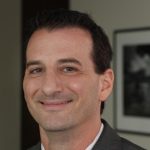
JAMES SAMMATARO
Title: Partner
Firm: Stroock
What is the one word people use to describe you? Determined.
What is your favorite thing about being in the legal profession? The forever changing and challenging landscape. To practice at a high-level, you need to commit to a lifelong pursuit of learning.
What could you do without in the legal profession? Unrealistic deadlines.
What is your No. 1 survival tip in a work crisis? Breathe.
What do you think you are better at than others? The ability to synthesize complicated concepts into page-turning briefs.
What advice do you have for aspiring legal professionals? Choose your practice area wisely. Make sure it ignites a passion.
What has been the most significant change in the legal profession in the past 10 years? The impact of technology: be it from having the “smoking gun” documents be in WhatsApp chats (or, no longer exist, given that they were sent via applications like Confide), or the use of AI to refine certain tasks.
Knowing what you know now, what would you tell your young self when you were graduating? Map out your desired career path, and take great pains to make sure that every job you accept will further your journey.
What are you most proud of achieving in your career? Being named by Billboard as one of the Top Music Lawyers and making Variety's Top Entertainment Attorneys' list.
What's your idea of an idyllic retirement, and are you going to pursue it? Residing surfside in San Sebastian, Spain, and noodling the occasional expert witness report. I surely hope so.
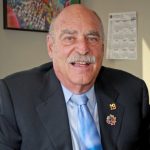
CHARLES TATELBAUM
Title: Director
Firm: Tripp Scott
What is the one word people use to describe you? Dynamic — as the suggested response given by my work team.
What is your favorite thing about being in the legal profession? The ability to solve problems and issues for good people and upstanding businesses.
What could you do without in the legal profession? The lack of attorney civility and professionalism that has cropped up more and more in the last decade.
What is your No. 1 survival tip in a work crisis? Focus more on the end result that is sought to be obtained as opposed to the means of obtaining it.
What do you think you are better at than others? I focus on creativity for solutions to client issues and provide demonstrated responsiveness to clients.
What advice do you have for aspiring legal professionals? Obtain as much business and accounting background as you can before entering any field of law practice.
What has been the most significant change in the legal profession in the past 10 years? The use of emails where clients now expect (or require) immediate responses to complicated legal questions, leaving the attorney to be on call 24 hours a day and mandating a response with little time to adequately consider the issue or question.
Knowing what you know now, what would you tell your young self when you were graduating? The legal profession is not as glamorous as portrayed in films and TV dramas. It is hard work that requires patience and constant focus.
What are you most proud of achieving in your career? A good professional and personal reputation.
What's your idea of an idyllic retirement, and are you going to pursue it? Assuming I ever retire, it would be to divide my time (a) with domestic and foreign travel with my wife, (b) taking extended motorcycle excursions with my wife and friends, (c) continuing to participate as a clown in the Macy's Thanksgiving Day parade and (d) volunteering for pro bono legal work for immigrants who are not given the right to counsel in immigration court.
This content has been archived. It is available through our partners, LexisNexis® and Bloomberg Law.
To view this content, please continue to their sites.
Not a Lexis Subscriber?
Subscribe Now
Not a Bloomberg Law Subscriber?
Subscribe Now
NOT FOR REPRINT
© 2025 ALM Global, LLC, All Rights Reserved. Request academic re-use from www.copyright.com. All other uses, submit a request to [email protected]. For more information visit Asset & Logo Licensing.
You Might Like
View All
How Uncertainty in College Athletics Compensation Could Drive Lawsuits in 2025

'As I've Grown Older': John Morgan Looks Back at a Life in Law

Race for Clerk and Comptroller in Miami-Dade: Juan Fernandez-Barquin vs. Sen. Annette Taddeo
11 minute read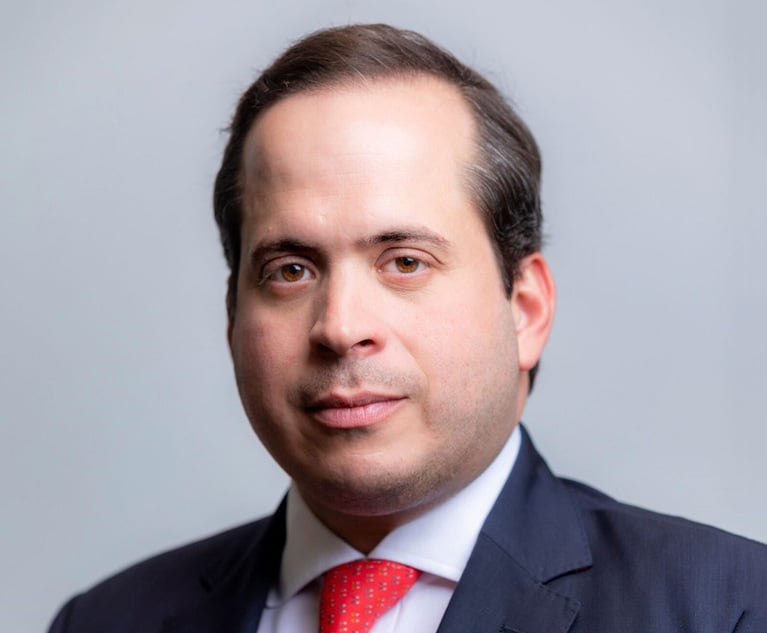
Meet Jesus M. Suarez: New Chair of the Eleventh Circuit Judicial Nominating Commission
4 minute readTrending Stories
- 1'Not the President's Personal Lawyer': Lawyers Share Concerns Over How AG Pick Bondi’s Loyalism to Trump May Impact DOJ
- 2US Judge OKs Partial Release of Ex-Special Counsel's Final Report in Election Case
- 3The Demise of Truth and Transparency in Federal Sentencing
- 4Former Phila. Solicitor Sozi Tulante Rejoins Dechert
- 5'I've Seen Terrible Things': Lawyer Predicts Spike in Hazing Suits
Who Got The Work
Michael G. Bongiorno, Andrew Scott Dulberg and Elizabeth E. Driscoll from Wilmer Cutler Pickering Hale and Dorr have stepped in to represent Symbotic Inc., an A.I.-enabled technology platform that focuses on increasing supply chain efficiency, and other defendants in a pending shareholder derivative lawsuit. The case, filed Oct. 2 in Massachusetts District Court by the Brown Law Firm on behalf of Stephen Austen, accuses certain officers and directors of misleading investors in regard to Symbotic's potential for margin growth by failing to disclose that the company was not equipped to timely deploy its systems or manage expenses through project delays. The case, assigned to U.S. District Judge Nathaniel M. Gorton, is 1:24-cv-12522, Austen v. Cohen et al.
Who Got The Work
Edmund Polubinski and Marie Killmond of Davis Polk & Wardwell have entered appearances for data platform software development company MongoDB and other defendants in a pending shareholder derivative lawsuit. The action, filed Oct. 7 in New York Southern District Court by the Brown Law Firm, accuses the company's directors and/or officers of falsely expressing confidence in the company’s restructuring of its sales incentive plan and downplaying the severity of decreases in its upfront commitments. The case is 1:24-cv-07594, Roy v. Ittycheria et al.
Who Got The Work
Amy O. Bruchs and Kurt F. Ellison of Michael Best & Friedrich have entered appearances for Epic Systems Corp. in a pending employment discrimination lawsuit. The suit was filed Sept. 7 in Wisconsin Western District Court by Levine Eisberner LLC and Siri & Glimstad on behalf of a project manager who claims that he was wrongfully terminated after applying for a religious exemption to the defendant's COVID-19 vaccine mandate. The case, assigned to U.S. Magistrate Judge Anita Marie Boor, is 3:24-cv-00630, Secker, Nathan v. Epic Systems Corporation.
Who Got The Work
David X. Sullivan, Thomas J. Finn and Gregory A. Hall from McCarter & English have entered appearances for Sunrun Installation Services in a pending civil rights lawsuit. The complaint was filed Sept. 4 in Connecticut District Court by attorney Robert M. Berke on behalf of former employee George Edward Steins, who was arrested and charged with employing an unregistered home improvement salesperson. The complaint alleges that had Sunrun informed the Connecticut Department of Consumer Protection that the plaintiff's employment had ended in 2017 and that he no longer held Sunrun's home improvement contractor license, he would not have been hit with charges, which were dismissed in May 2024. The case, assigned to U.S. District Judge Jeffrey A. Meyer, is 3:24-cv-01423, Steins v. Sunrun, Inc. et al.
Who Got The Work
Greenberg Traurig shareholder Joshua L. Raskin has entered an appearance for boohoo.com UK Ltd. in a pending patent infringement lawsuit. The suit, filed Sept. 3 in Texas Eastern District Court by Rozier Hardt McDonough on behalf of Alto Dynamics, asserts five patents related to an online shopping platform. The case, assigned to U.S. District Judge Rodney Gilstrap, is 2:24-cv-00719, Alto Dynamics, LLC v. boohoo.com UK Limited.
Featured Firms
Law Offices of Gary Martin Hays & Associates, P.C.
(470) 294-1674
Law Offices of Mark E. Salomone
(857) 444-6468
Smith & Hassler
(713) 739-1250






